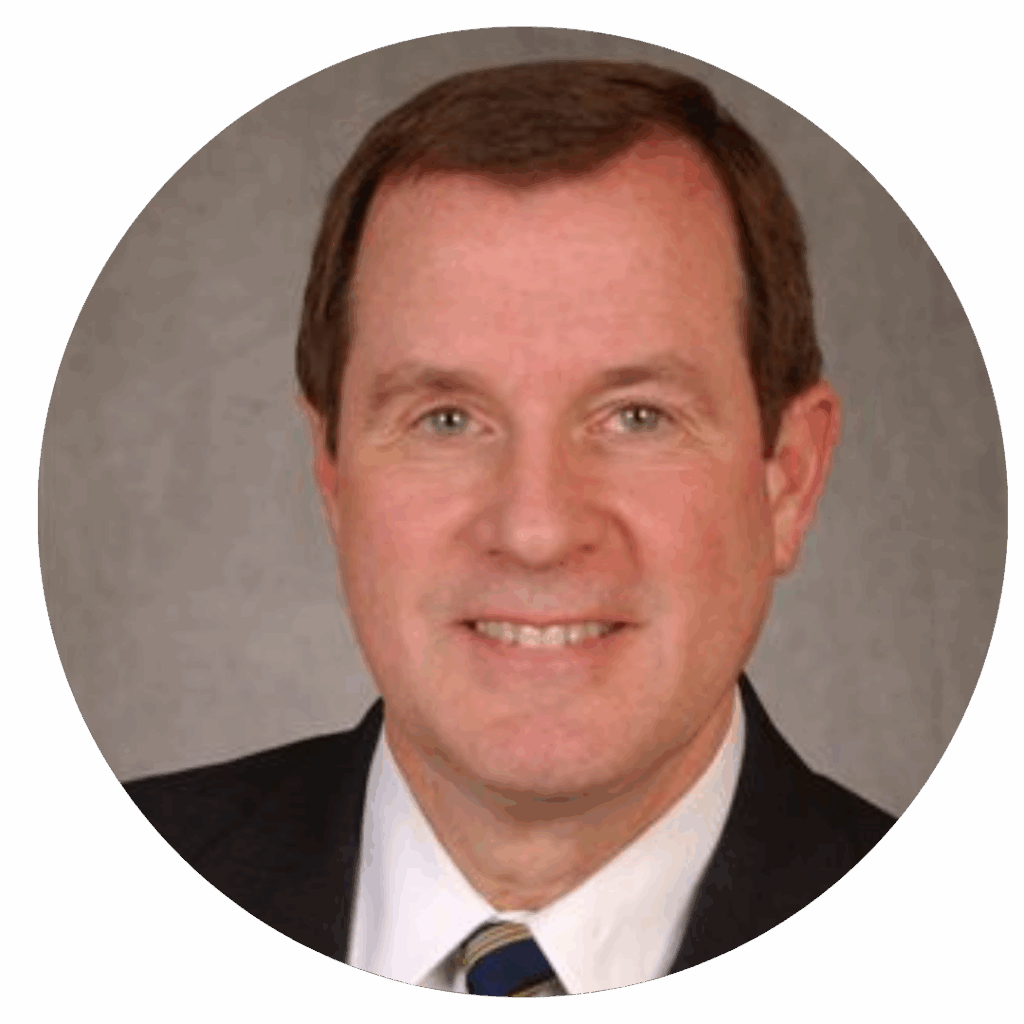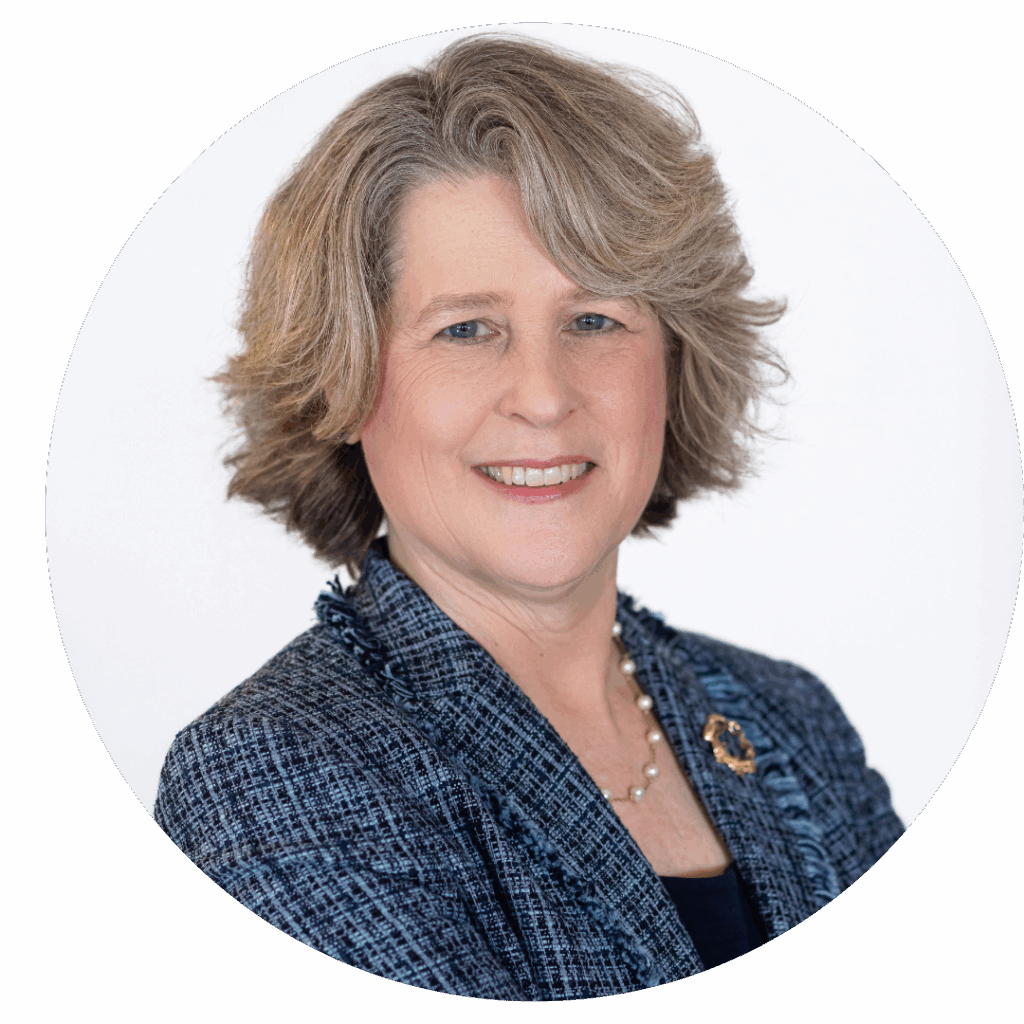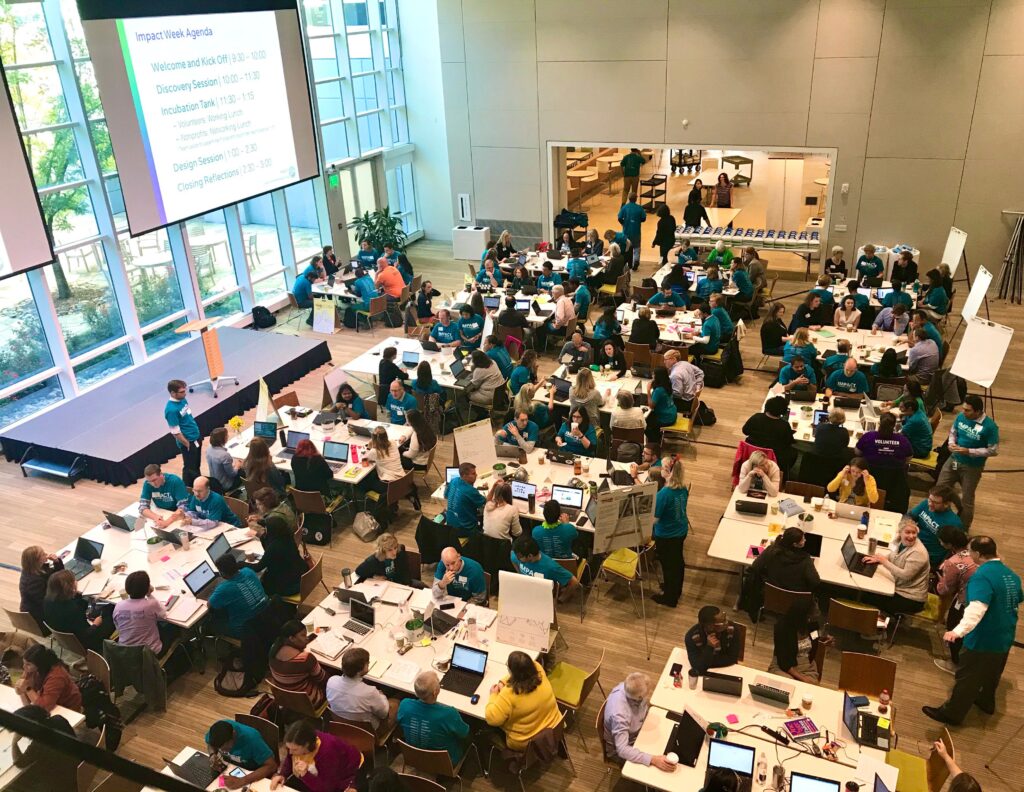
When you speak with Steve Neff, it doesn’t take long to realize that service isn’t a side note in his story- it’s at the center. A longtime Fidelity executive, leader, and dedicated community champion, Steve has supported Common Impact for 20+ years, including serving on our Board of Directors for nearly a decade. Over that time, he’s played a pivotal role in helping shape our work, grow our impact, and deepen our partnerships.
In this conversation with Common Impact CEO Rachel Hutchisson, Steve reflects on his journey through leadership, community service, and his firsthand experience with skills-based volunteerism. Read on to hear Steve’s take on why purpose-driven work matters more than ever.
For companies, we found that skills-based volunteering and community involvement are a huge draw for talent… In today’s talent market, it’s a powerful attractor and a strong retention tool, especially for top performers.

Rachel Hutchisson:
Steve, thank you for taking the time to talk to me about Common Impact, an organization I know you love and that I’m honored to lead. You’ve supported your community in many different ways over the years. Can you tell us a little bit about what causes are the most important to you?
Steve Neff:
Thank you for making me part of this process. Common Impact celebrating 25 years is an unbelievable achievement, and I’ve been involved for 20 years. My involvement with different causes has evolved. Places like St. Francis House and Home Start are incredible organizations that support people experiencing homelessness. Then there is cancer research. My wife Mary and I both lost one of our parents to cancer. When her mom had it, we were working with Dana-Farber in Boston, and they were an incredible organization. That led me to get involved with the Pan-Mass Challenge (PMC). PMC raises funds for Dana-Farber through a Massachusetts-based bike-a-thon. This year is my 16th year riding. Fun fact: Fidelity has a team of riders, too!
And then there is skills-based volunteering. It’s a way to connect and collaborate with different organizations. I got into skills-based volunteering through Common Impact about 20 years ago.
Rachel Hutchisson:
We could talk about everything you mentioned for a long time. There are so many intersections with what you just said and what I’m passionate about as well. How has your career shaped the way you think about social impact, community, and responsibility?
Steve Neff:
I’ve been with Fidelity, and now on the board, for just over 30 years. We have an organization called Fidelity Cares that has invested time in understanding each of the communities where Fidelity has the privilege to serve. Fidelity Cares focuses on what those communities need and how we can show up in ways that make a real difference. Whether it’s financial empowerment, education, healthcare, or other areas, there’s always been a pull to focus on more than just the core business. This is part of Fidelity’s most fundamental goals, and it has shaped my perspective.
In the early years, my volunteering was oriented around my kids: their schools, sports teams, and coaching soccer. As my career progressed, I started to ask: What else can I do? How can I leverage my skills? When is the right time to give back even more? There’s always a balance between how much time you have, how much you can give financially, and how you continue to manage it all.
Rachel Hutchisson:
Yes, and what you just said about engaging with your kids really resonates. That’s often how people first get involved, whether through their children’s schools, places of worship, or local activities. You mentioned the soccer team. I did my duty as the team manager too. It’s a natural starting point. But as professionals with limited time, we begin to think more intentionally about impact. That’s what led me to the board of Common Impact, which is how you and I met. You’ve been involved for a long time as well, including your time on the Common Impact board. What first brought you to the organization?
Steve Neff:

Fidelity’s collaboration with Common Impact goes back to around 2004, in the early days of skills-based volunteering. Theresa Ellis, co-founder of Common Impact, had launched the idea as an evolution of the pro-bono work that was very successful in the legal profession. She believed that the same concept could be leveraged for other disciplines like technology, operations, finance and HR supporting high potential non-profits to achieve a higher level of impact for their communities. Theresa approached Fidelity for grant funding and to sponsor a few projects, as Fidelity is a strong advocate of community service and employee engagement in volunteer work. I then stepped in to lead technology for Asset Management, just as the initial common impact project was wrapping up.
I asked the technology team about the volunteer project they were involved with. It was with a small community organization in Boston called the Hattie B. Cooper Community Center, which offered after-school programs. When I asked what the project was about, they spent more time talking about the nonprofit than the technology they helped with, which is a common thread in these engagements. Working closely with nonprofit staff and learning about their organizations stays with people. The team built a database, added a web front-end, and provided critical tech training. It had a huge impact on their operations. We recognized the team at an all-hands meeting, and they received a community service award. It was a big moment, and a lot of people wanted to get involved after that.
After some time, I became the executive sponsor for Common Impact at Fidelity, and Theresa convinced me to join the board. Joining the board was my first experience in nonprofit governance, and it opened my eyes to a different kind of leadership and impact. Later, when Theresa went on maternity leave, I stepped in as interim executive director of Common Impact. It was a big shift going from a large company to a small nonprofit where every dollar counts.
We introduced new products and models. We began transitioning to a model that focused on selecting individuals to build skills and develop cross-company relationships and to develop high-potential leaders for next-level roles. We also expanded beyond technology to include HR, finance, and operations. The types of projects and the disciplines grew over time.
We handpicked seven or eight participants to give them experience in business planning, strategy, working with nonprofit boards, and presenting their final results to those boards. They also presented their results to Fidelity’s leadership team, gaining valuable exposure to senior leaders. Those were the best engagements. They delivered the highest value to both the nonprofits and the employees involved.
Rachel Hutchisson:
Wow, that is amazing! Let’s talk some more about skills-based volunteering, which is where Common Impact is now firmly focused. Why does it matter so much, particularly in the way work is evolving?
Steve Neff:
First, there’s what’s in it for the company, and then what’s in it for the community and nonprofits. For companies, we found that skills-based volunteering and community involvement are a huge draw for talent. The culture of service is part of what makes people want to stay at Fidelity. The net promoter scores for skills-based volunteering engagements are consistently in the high 90s. People say the projects were meaningful, they learned new skills, connected with others at Fidelity, and would recommend it. In today’s talent market, it’s a powerful attractor and a strong retention tool, especially for top performers.
On the nonprofit side, budgets are being slashed, funding is disappearing, and relationships are changing. Nonprofits need new skills and fresh perspectives and guidance. Who better to provide that than professionals with expertise in different disciplines? They can help nonprofits stretch their limited resources and be more effective, which is crucial right now.
Rachel Hutchisson:
What makes Common Impact special?
Steve Neff:
It started as a concept, and having watched it grow for the past 25 years, it’s amazing to see these little seeds blossom into a hugely successful organization. Others have tried to replicate the model, but Common Impact has really led the way.
I see its value in four parts. First, the nonprofits themselves clearly benefit. Every survey and feedback point to that. Second, the nonprofits are part of broader communities, and when multiple organizations are lifted up, the whole community benefits. Then, for Fidelity associates, we’ve had over 3,000 people go through various skills-based volunteering programs, where they build skills, develop new relationships, and feel good about their work and their contributions beyond their day jobs. They get to use their skills in a different and meaningful way. And finally, for Fidelity as a company, when associates are happy, we attract more talent, retain more talent, and the whole company gets better. So, everybody wins, and there is no downside.
Rachel Hutchisson:
I want to change the pace a bit and ask you some fun popcorn questions.
What’s something you’re thankful for in your community?
Steve Neff:
What I really appreciate is the ability to use sports to raise money for important causes. I’m a cyclist, so whether it’s the Pan-Mass Challenge, ALS rides, or the Rodman Ride for Kids, it’s a great way to do good for an organization while also supporting your own health.
Rachel Hutchisson:
Would you rather read a book or listen to a podcast?
Steve Neff:
Probably a podcast. But I am reading a book right now about the American Revolution called Almost a Miracle. We think of the revolution as this clear success story, but it came incredibly close to failing. Washington actually lost more battles than he won. It’s a pretty compelling story.
Rachel Hutchisson:
Favorite hobby?
Steve Neff:
My newest hobby, which I do with my youngest, is riding roller coasters and filming them with GoPros and drones.
Rachel Hutchisson:
What’s the best piece of advice you’ve ever received?
Steve Neff:
I’ll give you two. First: the best time to find a job is when you already have one. That one makes a lot of sense. Second is actually a prayer I once heard: “Dear God, please treat me tomorrow the way I treated others today.” It’s a very dangerous prayer. It really makes you think.
Rachel Hutchisson:
Favorite holiday tradition?
Steve Neff:
Anything where we can gather as a family. We try to get everyone together at the house and pack it with as many people as we can.
Rachel Hutchisson:
And finally, something you loved as a kid that you still love now?
Steve Neff:
I still remember getting my first bike as a kid, and I’m 73 now and still cycling. So that’s stayed with me.
Rachel Hutchisson:
Thank you, Steve, for chatting with me today. We so appreciate you continuing to support Common Impact. You have truly seen the organization grow and evolve!
Ready to learn more about skills-based volunteering? Reach out & stay connected







